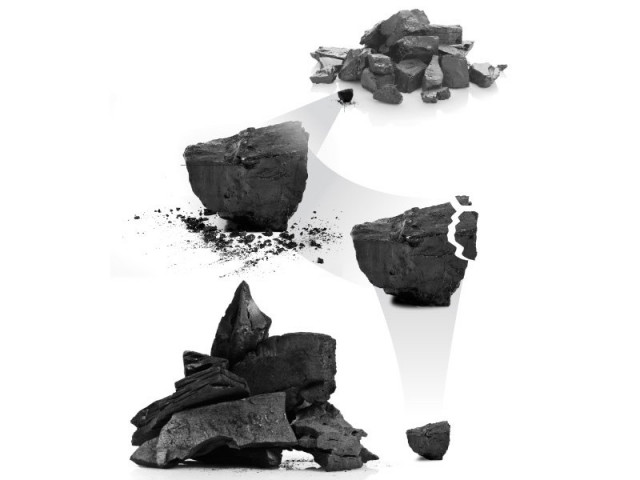ADB funding: boon or bane?
About-turn in this case is by the Asian Development Bank. We will be more environmentally friendly, but at what cost?

Once Thar coal is available, plants will not be able to use it and Pakistan will be forced to import millions of tonnes of coal to run them or spend millions to convert them to Thar coal spec. DESIGN: FAIZAN DAWOOD
Thar coal, however, is not the ideal kind of coal. It is less energy efficient and it is also less environmentally friendly than other kinds. But it can — theoretically — solve Pakistan’s energy crisis. If Pakistan can solve the energy crisis, it can literally jump-start its stalled economy. Dams take time to build, time that subsequent governments have wasted. Nuclear power is expensive, and again, it needs time. The geographical footprint of alternative energy solutions, like wind and solar, is just too big for these to be practical.
So, coal is the answer, but we have no plants that run on coal and the Lakhra Power Plant is currently inoperative. The Asian Development Bank (ADB) had promised Pakistan $900 million to convert the 600-MW Jamshoro Power Plant to coal and to construct another 600-MW plant. But the ADB insists that these plants run on imported coal, of a different spec than Thar coal, because they would then be more environmentally friendly.
But once Thar coal is available, these plants will not be able to use it and Pakistan will be forced to import millions of tonnes of coal to run them or spend millions to convert them to Thar coal spec.
The government has been trying to convince the ADB to fund the import of coal which is of a similar spec to Thar coal so that the cost of conversion is not wasted. On the insistence of the government, the ADB assured the Sindh chief minster last year that it had no issue with funding these projects to run on Thar coal.
But now, it seems, the ADB has convinced the government to agree to its conditions and import coal of a different spec, or risk losing the funding. The about-turn in this case is not by the government, but the ADB. We will be more environmentally friendly, but at what cost?
Published in The Express Tribune, February 18th, 2013.



















COMMENTS
Comments are moderated and generally will be posted if they are on-topic and not abusive.
For more information, please see our Comments FAQ